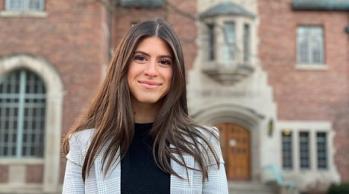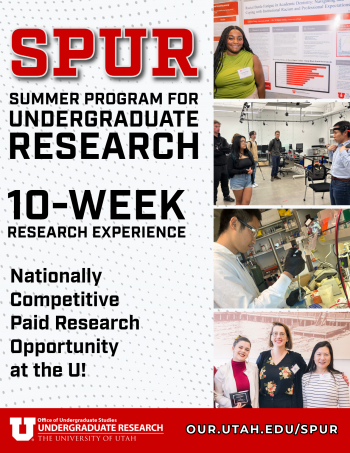
Student view: Solving real-world problems with lab work
Courtesy of MSUToday. Read original story here: https://msutoday.msu.edu/news/2020/student-view-solving-real-world-problems-with-lab-work?sc_camp=C5792E5D342B45C688982386A82A7829&utm_source=msudaily-email&utm_medium=email&utm_campaign=standard-promo&utm_content=text5
Katelyn Bishop is a senior double majoring in international relations in James Madison College and public policy in the College of Social Science. Bishop conducts open source research on human rights violations with the James Madison College Human Rights Lab. Some of her previous work has included: tracking the development of detention centers in Venezuela, analyzing AIS data from illicit maritime shipping and, currently, using remote sensing to track the movement of drones across Libya and Egypt.
Looking back at my initial college search, finding a place where I could engage in unique learning opportunities was important. A motivating factor in my choice to attend Michigan State University was its status as an R1 research university. I had attended the MSU Alumni Distinguished Scholarship Competition during my senior year of high school and learned about James Madison College, from there I knew JMC was the place I needed to be. During an information session for the college, I heard Professor Brathwaite present his own research. Little did I know that same professor would become one of my greatest mentors in my time at MSU.
The double-edged sword of attending a university with such high research activity, is that the opportunities seem endless. I was fortunate enough to take a class with Professor Brathwaite early into my academic career and I expressed to him this feeling of wanting to do more outside the classroom, but not knowing how. Professor Brathwaite suggested I join his research lab. Over the last several years I have watched the lab grow from three students to nearly twenty, and I have been fortunate to become a student lab leader in my senior year.
Despite its humble beginnings, the lab is one of the only research operations of its kind at the undergraduate level, and we are fortunate to have it here at Michigan State. Not many students can say that data they have helped to analyze was utilized by non-governmental organizations like TRIAL International or have had the opportunity to present research to an investigator to the International Criminal Court. More than anything, this lab has helped me find “real life” applications in my major. As a social science student much of our coursework consists of learning theory or analyzing case studies. The lab has provided an opportunity to use coursework in real-world applications.
One of the most memorable projects I have been able to work on would be the AIS data cleanup, which I assisted in my junior year. The lab was given data sets for a number of ships that were suspected to be engaging in oil smuggling and linked to a Swiss trading company. From there we worked to identify the periods in which the ships turned off their AIS transponders and went dark as well as their corresponding geographic coordinates. The lab was able to provide this data, as well as satellite imagery to TRIAL International to assist in its investigation.
The amazing part of this work was that even though none of us had any experience working with maritime data, or looking at maritime satellite imagery, we were still able to provide relevant and usable work. This is a true testament to the culture of the lab, as well as its adaptability. I firmly believe that because this lab has placed such a strong emphasis on the skills we possess as students we are able to work on any kind of project. I’m thankful for the ways in which the lab has helped me grow as a student, and the ways in which it has prepared me to enter the professional world following my time at MSU.







